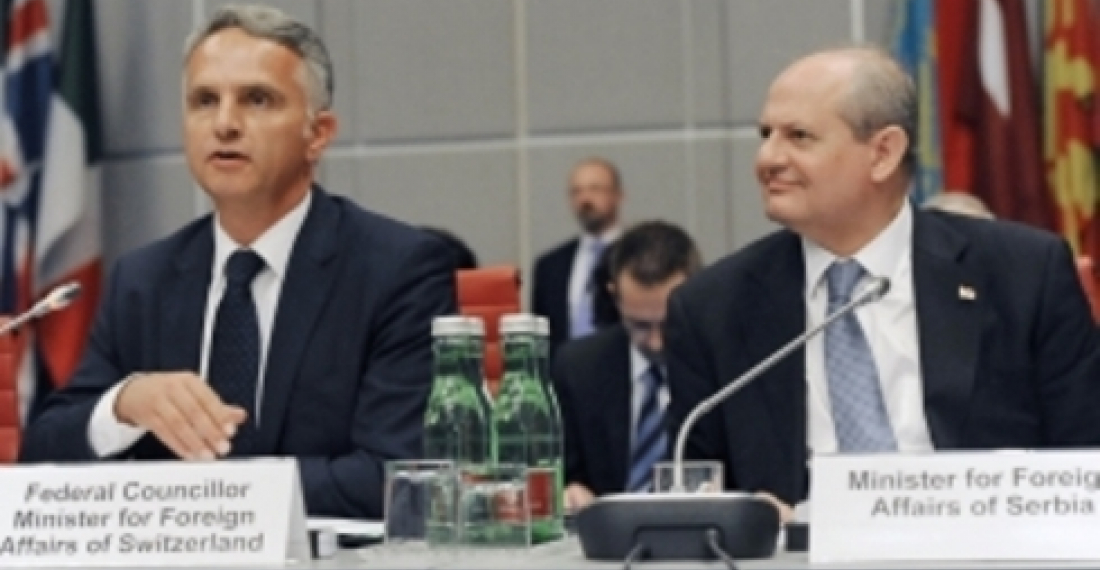The South Caucasus will be one of the main areas of focus of the incoming Swiss Chairmanship of the OSCE in 2014. The programme prioirities are also shared by Serbia which will take over the Chairmanship in 2015. A statement issued today by the OSCE in Vienna said that the foreign ministers of Switzerland and Serbia, Didier Burkhalter and Ivan Mrkić, this morning outlined the joint workplan of their consecutive Chairmanships of the OSCE in 2014 and 2015 at a special meeting of the Permanent Council in Vienna.
"By taking the helm next year, we wish to contribute to creating a security community for everyone," said Burkhalter. He stressed that dialogue in the South Caucasus, modernizing military transparency arrangements, exchanging on the future of conventional arms control and improving governance in the security sector were among the Swiss priorities in the politico-military area of the OSCE's work.
Improving people's lives by "combating torture, respecting human rights in the fight against terrorism, protecting human rights defenders, and respecting the rights of persons belonging to national minorities," would also be areas of focus, Burkhalter announced. Given the close co-operation between the two chairmanships, co-operation in the Western Balkans is also a priority of the Swiss Chair.
Speaking about the Helsinki+40 process to strengthen the effectiveness of the OSCE in the run-up to the 40th anniversary of the Helsinki Final Act in 2015, which each Chairmanship will lead, Mrkić said: "We expect long and, most probably, difficult discussions on many issues, such as resolution of protracted conflicts, new transnational threats and challenges, dialogue on arms control, cyber security, human dimension issues, to name just a few."
According to the OSCE statement Switzerland and Serbia will coordinate closely during the two consecutive chairmanships. While each country will be responsible for one year as chair alone, they want to maximize coordination so as to provide more continuity and planning certainty for the OSCE and its participating States.
Commonspace.eu political editor said in a comment:
"There is hope in the international community that the Swiss Chairmanship next year will provide the OSCE with strong political leadership at a time when the Organisation is perceived as drifting. The organisation has still not fully recovered from its failure to act decisively ahead of the 2008 Georgia-Russia War, given its role then as the leading international agency mediating over the South Ossetian conflict. It also faces a number of political and organisational challenges. Switzerland's historical neutrality will help it navigate the old East-West divide that lingers within the OSCE more than two decades after the end of the cold war. The decision to make the South Caucasus a priority area of the Swiss Chairmanship is commendable, although this raises expectations that may not necessarily be fulfilled. Switzerland is perceived as an honest broker in the region, and may be able to achieve more than others, but to achieve results the Swiss will need to leverage the support of the rest of the international community. A strong EU-Swiss dialogue on the South Caucasus between now and the end of the year can be very useful."
Source: Commonspace.eu with Press Service of the OSCE.
Photo: The Swiss and Serbian Foreign Ministers addressing the OSCE Permanent Council in Vienna on 2 July 2013. (picture courtesy of the OSCE).







